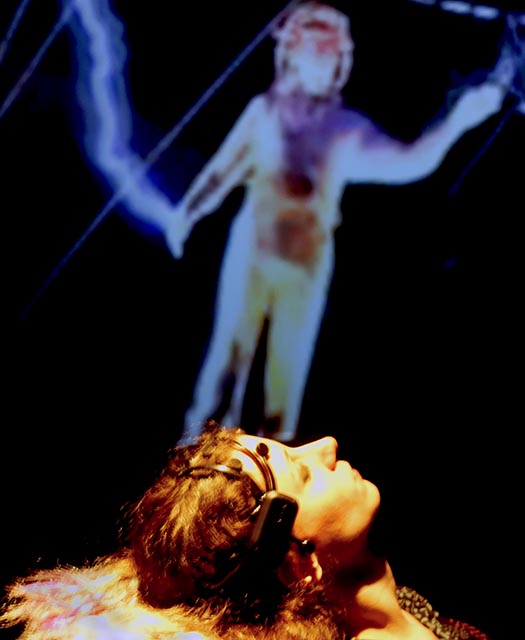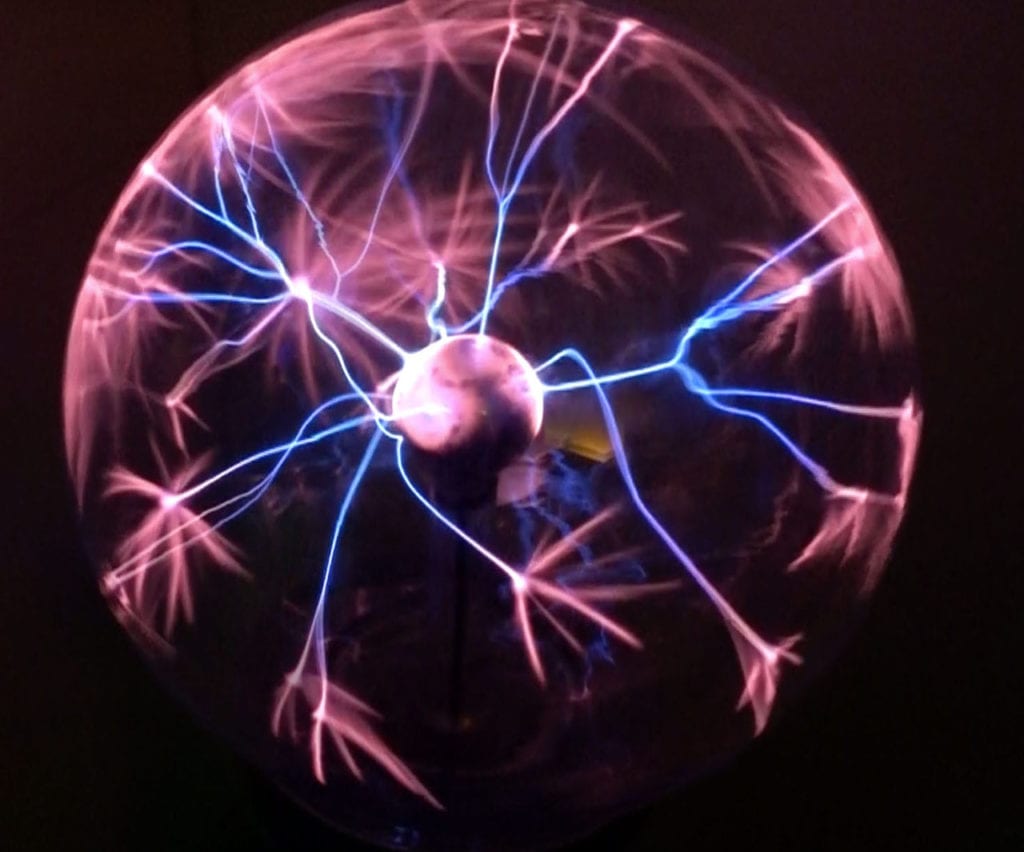I was really looking forward to spending time in Kyiv, Ukraine this past April, but my plans were thrown for a loop by the COVID-19 pandemic. With great assistance from ZERO1, I pivoted in the short space of two weeks to a fully online experience. It was also fortunate that my incubator topic was art and artificial intelligence, which meant it could be conducted mostly through digital means.
Still, that meant that I would be holding the workshop in two languages, sometimes with a professional interpreter, and sometimes not, across a seven-hour time difference.

After giving my artist talk in conjunction with Bryan Furman from the Cultural Affairs Office at the U.S. Embassy in Kyiv, I spent one session entirely online getting to know my two dozen or so Ukrainian artists, scattered throughout the country in strict lockdown inside their homes.
My on-the-ground host collaborator in Kyiv was IZOLYATSIA, Platform For Cultural Initiatives, originally based in Donetsk. I was assisted by Mykhailo Glubokyi (Misha) and Oleksandra Khalepa (Sasha).
The selected artists for the incubator were VJs, visual artists, graphic designers, programmers, engineers, musicians, sound designers, and individuals adept at working in virtual reality. Save for one participant though, no one had fully worked with machine learning before, which is the fundamental aspect of artificial intelligence.
Over the course of three days, I showcased some of the fundamentals of machine learning through art via Zoom sessions. At the same time participants were engaging in the lectures, they began posting their ideas for team projects asynchronously in Slack.
At the end of the three days, we met online and went over every artist's project idea until settling on four themes: 'Conspirology,' Environmental and Moral Responsibility, Isolation and Connectedness, and Mudra — a translation tool for Ukrainian sign language.
For the next two weeks, we dove into into accelerated development. I met with each team in Zoom from my house in New York City, as the participants were scattered throughout Ukraine.

We had only one day of presentation rehearsal to show the final works-in-process to an international panel of AI and art experts for feedback: Arif Khan of Alethea.ai, Misha Libman of Snark Art, Gene Kogan of Abraham.ai, and Vanessa Chang, a well-known San Francisco based curator.
What really surprised me was the relative ease and speed at which the artists, who had not known one another previously, were able to adapt to forming collaborative teams that used accelerated development tools. They were able to develop coherent and plausible proof-of-concept designs.
We have now concluded the initial phase of the exchange, but some of us hope to continue by forming a media arts alliance between the Baltics and Ukraine. We have a meeting scheduled for early June, and I am already looking forward to the results.
I first visited Kyiv Ukraine in 1992, the first year of Perestroika, and again in 1993. I met Ukrainian artists in New York City by chance during an open art studio day in Brooklyn, and one of the artists I met was from Kyiv. She spontaneously invited me to visit her hometown, saying she would set me up with a place to stay (this was pre-AirBnb), and connect me with all of her artist friends.
I instantly made plans to go to Kyiv.
What I discovered was a strong community of creative practitioners who all seemed to know one another. Their network was wide, and extended into all the major cities of the former Soviet Union, as they had all attended school together. Their art practice was both conceptual and tactile, encompassing the plastic arts, i.e. painting, drawing, batik, metal, ceramics and sculpture. Though they were resource-poor, they were conceptually rich, and the fact that I was an artist from America intrigued them.
Now, 27 years later I am returning to Kyiv to work with Ukrainian artists, but this time around themes of artificial intelligence and art. It’s quite a leap in creative techniques since my previous visit. What is new is that Ukraine is rich in a new type of natural resource – computer programmers. According to a study by Deep Knowledge Analytics, taken from a database compiled by Clutch.co, Ukraine has the most outsourcing companies in artificial intelligence in both Eastern and Western Europe. The authors of the Deep Knowledge Analytic report also cite LinkedIn as listing more than 2,000 companies who develop AI related platforms.

This dovetails with my current arts practice, as I work with biometric indicators (brain computer interfaces) as well as AI. I created “Noor,” a fully immersive interactive brainwave opera, as well as “AIBO” an emotionally intelligent AI brainwave opera. I am also a Director of an high-end art and technology residency in New York called ThoughtWorks Arts that works with cutting-edge technologies such as cyborgs, illegal harvesting of genetic data, breath and virtual reality, facial recognition and AI, movement and robotics, volumetric filmmaking, blockchain and AI, as well as synthetic media. In addition, I run Art-A-Hack ™ a creative group collaboration that brings artists and technologists together to "make something new." The groups contain experts as well as non-experts, and it is this methodology or toolkit I will use when working with Ukrainian artists.

My host organization IZOLYATSIA is finding participants such as creative technologists, as well as artists both from Kyiv and outlying Ukrainian cities at their new location in Kyiv. IZOLYATSIA “orientates its activity toward the new Ukrainian generation that is involved in the creative and cultural sectors. We will work together to create projects on “Digital Literacy and New Horizons in AI and Art.” I am very interested to see the unique Ukrainian perspectives on technology and art.
Ellen Pearlman's incubator will take place from April 2-25, 2020 at IZOLYATSIA with support from U.S. Embassy Kyiv.